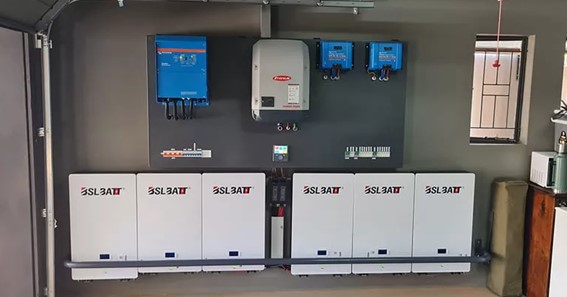Power outages can be a major inconvenience and disrupt our daily lives. Whether it’s due to extreme weather conditions, equipment failure, or scheduled maintenance, losing electricity can leave us feeling helpless and frustrated. In recent years, there has been a growing interest in residential battery backup power systems as a solution to this problem. These systems offer homeowners the ability to store electricity and use it during power outages, ensuring continuity in their homes. In this article, we will explore the benefits of residential battery backup power and how it can provide peace of mind in times of uncertainty.
What is Residential Battery Backup Power?
Residential battery backup power systems, also known as home energy storage systems, are designed to store electricity for later use. These systems typically consist of a battery bank, an inverter, and a control unit. The battery bank stores the electricity generated by a home’s solar panels or grid power, while the inverter converts the stored electricity into a usable form. The control unit manages the flow of electricity and ensures that power is available when needed.
The Benefits of Residential Battery Backup Power
There are several benefits to investing in a residential battery backup power system:
1. Continuous power supply during blackouts: One of the major benefits of a residential battery backup power system is that it provides an uninterrupted power supply during blackouts. This is particularly important for households that rely on electricity for essential needs such as medical equipment, refrigeration, or heating and cooling.
2. Energy independence: Investing in a residential battery backup power system from Univix allows homeowners to become more self-sufficient and less reliant on the grid. By storing excess energy generated from renewable sources like solar panels, homeowners can use this stored energy during peak demand times or when the grid is down, reducing their reliance on fossil fuel-based electricity.
3. Cost savings: Over time, a residential battery backup power system can help homeowners save money on their energy bills. By using stored energy during peak demand times or when electricity rates are higher, homeowners can avoid paying premium prices for electricity. Additionally, some utility companies offer incentives or credits for homeowners who install battery backup systems, further reducing costs.
4. Environmental benefits: By investing in a residential battery backup power system, homeowners can reduce their carbon footprint and contribute to a more sustainable future. By storing and using renewable energy, homeowners can decrease their reliance on fossil fuel-based electricity, leading to reduced greenhouse gas emissions and a cleaner environment.
5. Increased energy efficiency: Battery backup systems can also improve overall energy efficiency in a home. By storing excess energy and using it during times of high demand, homeowners can optimize their energy usage and reduce waste. This can lead to lower energy bills and a more sustainable lifestyle.
6. Power during peak demand: Residential battery backup power systems can help homeowners manage peak demand periods when electricity usage is high. By using stored energy during these times, homeowners can avoid straining the grid and potentially experiencing power outages.
Choosing the Right Residential Battery Backup Power System
When selecting a residential battery backup power system for your home, there are several factors to consider:
1. Energy storage capacity: The first factor to consider is the energy storage capacity of the battery backup system. This is measured in kilowatt-hours (kWh) and determines how much electricity the system can store for use during power outages.
2. Power output: The power output of the battery backup system, measured in kilowatts (kW), determines how much electricity it can deliver to your home during an outage. It is important to choose a system that can meet your household’s electricity needs during emergencies.
3. Battery lifespan: The lifespan of the battery is an important consideration as it determines how long the system will last before needing to be replaced. Look for batteries with longer lifespans to ensure a reliable backup power solution for your home.
4. Efficiency: The efficiency of the battery backup system refers to how effectively it can convert stored energy into usable electricity. Higher efficiency systems will ensure that you get the most out of your stored energy and minimize energy losses.
5. Installation and maintenance: Consider the ease of installation and maintenance requirements of the battery backup system. Look for systems that are easy to install and require minimal maintenance to ensure a hassle-free experience.
6. Integration with renewable energy sources: If you have solar panels or other renewable energy sources installed in your home, consider a battery backup system that can integrate with these sources. This will allow you to store excess energy generated by your renewable sources for use during power outages.
7. Cost: Lastly, consider the cost of the battery backup system. Compare prices and consider the long-term savings and benefits of having a reliable backup power solution for your home. By taking these factors into account, you can select a residential battery backup power system that best meets your household’s needs and provides peace of mind during power outages.
Conclusion
Residential battery backup power systems offer homeowners the ability to ensure power continuity during outages and reduce their reliance on the grid. With benefits such as power continuity, energy independence, cost savings, and environmental benefits, these systems are becoming an attractive option for many households. When selecting a residential battery backup power system, consider factors such as battery capacity, scalability, warranty and lifespan, and integration with existing solar panels. Investing in a reliable battery backup power system can provide peace of mind and ensure that your home remains powered even in the face of uncertain circumstances.
Click Here – What Is Postoperative Physical Therapy?

